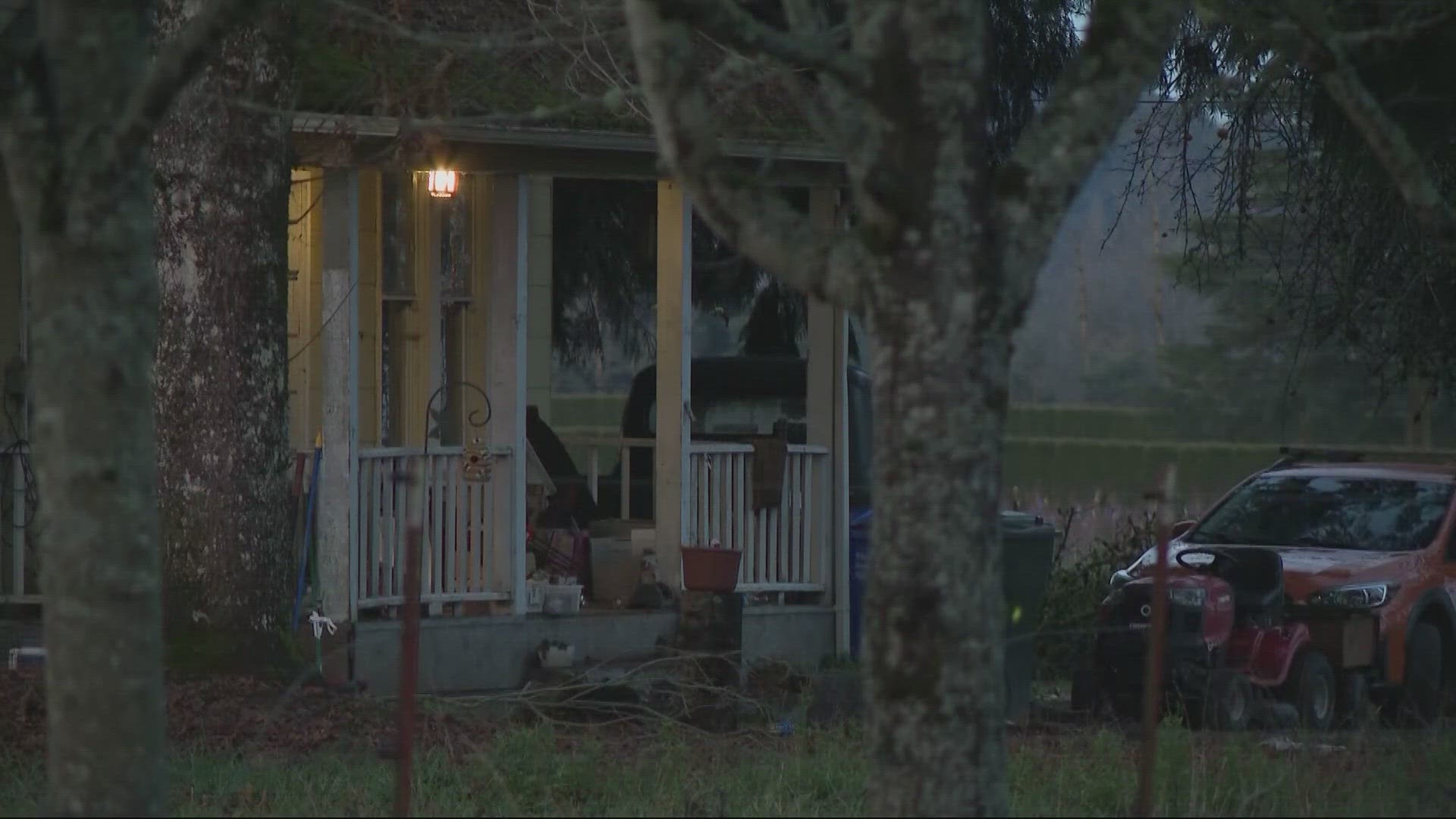CLACKAMAS COUNTY, Ore. — The woman who was killed in a murder-suicide near Boring on Wednesday had petitioned for a restraining order against her husband that was denied in June of 2022.
Clackamas County court paperwork shows Diane Psaros and her husband, Lawrence Peters, were going through a long and difficult divorce, as they tried to separate assets, including their home.
Psaros had felt threatened enough to file for that restraining order against Peters.
Court paperwork shows on July 5, 2022, a petition for a "restraining order to prevent abuse" was filed by Psaros in Clackamas County. She was asking that, among other things, her husband stay at least 150 feet away from her, not contact her, move out of the house they owned together in Damascus, and be prohibited from buying or possessing firearms.
The petition was denied by Clackamas County Judge Ulanda Watkins.
A year and a half later, deputies found the bodies of the 43-year-old Psaros and 46-year-old Brian Rolen, along with a dog shot and killed inside a Multnomah County home. Later, Clackamas County deputies tried to make a traffic stop of 54-year-old Lawrence Peters, who took off and eventually shot himself inside his vehicle.
PREVIOUS: 3 people found dead in county-spanning crime scenes knew each other, Multnomah County Sheriff's Office says
Michelle Bart has been a victims' advocate for 15 years, as founder and president of the National Women's Coalition Against Violence and Exploitation (NWCAVE). Bart said she is not pleased with the judge’s decision.
“For the courts not to listen to the cries of victims is just ludicrous," Bart said. "They go through a lot to fill those (forms) out and then only to be rejected by the judge — a female judge, no less — where are we going wrong? We're not protecting the people that need protection anymore.”
There is no written explanation of the decision in the denial, but Judge Watkins checked the box stating, "Petitioner did not establish a claim of relief."
Regardless, Bart said there is a problem with a system that too often makes it hard to petition for protective orders and doesn't take victim's concerns seriously — maybe more so in familial situations.
“And if the people that the victims are going to for help don't understand that — they say, ‘Oh, he's your husband, you know, until he does something.' Well, no, we can't wait until somebody does something because then it's too late," Bart said.
She added that she doesn't know if a granted restraining order would have saved Psaros's life.
“We'll never know if a protective order would have slowed his progression down; we'll never know why the court decided to do this,” said Bart. “Unfortunately, individuals that are taking the lives of others, they have an agenda; they're gonna do whatever it takes and killing themselves ... it's not a surprise anymore.”
NWCAVE organization helped, in this case, to arrange a therapy dog for the 19-year-old surviving son of Psaros.
KGW has reached out to Judge Ulanda Watkins regarding her decision but has not heard back.

